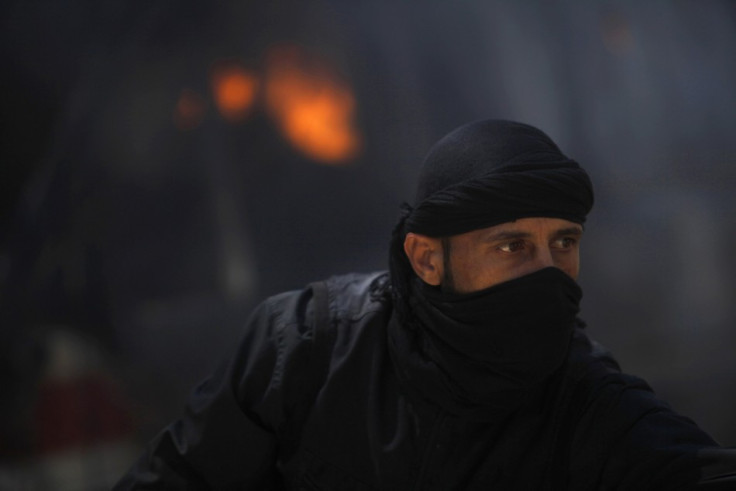50 Syria Militants Could Return to Wage Jihad in UK, Claims Intelligence Source

Up to 50 British jihadists may have returned to the UK to plan terrorist attacks, after receiving weapons training and combat experience in the Syrian civil war.
A security source told the Sunday Times that MI5 was tracking a number of individuals who are believed to have fought for al-Qaida-linked jihadist groups against the forces of Syrian president Bashar al-Assad.
"Extremists go there and come back enthused and with added skills. Others go there and make contacts which they otherwise may not have made," said the source.
Radicals from the UK, and countries including Germany, the US and Belgium, are believed to travel to northern Syria across the country's borders with Turkey and Lebanon, often under the guise of humanitarian workers, then ally themselves with groups such as Jabhat al Nusra, which has pledged allegiance to al-Qaida and which, security officials believe, intends to target the west.
"It is likely that there are people who are going out there as part of an aid convoy, and that once they are there they might decide to do something else," Raffaello Pantucci, a senior research fellow at the Royal United Services Institute, told the paper.
Ibrahim al-Mazwagi, who in March became the first UK jihadist to be killed in the conflict, told his family he was travelling to Syria for charity work.
This week, the new director of MI5, Andrew Parker, said that the agency was devoting more time to monitoring UK nationals travelling to and from Syria.
"For the future, there is good reason to be concerned about Syria. A growing proportion of our casework now has some link to Syria, mostly concerning individuals from the UK who have travelled to fight there or who plan to," he said.
The remarks echoed those of Home Secretary Theresa May, who recently warned of the growing threat of posed by returning militants.
"Some of those people are potential terrorists, some of whom may get training, and in some cases may actually engage in conflict and then return to the UK," she said.
It is believed that about 700 Europeans are currently fighting in the Syrian civil war. German interior minister Hans-Peter Friedrich is pushing for the establishment of visa bans, preventing citizens suspected of Syrian jihadist ties returning to the country for two years.
But critics argue that many of those returning hold full citizenship, which may make this plan impossible to enforce. Others argue the threat is overblown, and fears of fighters radicalised in Iraq launching terror attacks in the west have so far proven to be unfounded.
The chairman of the Charity Commission, William Shawcross, warned recently that money donated to help refugees fleeing the Syrian conflict was finding its way into the hands of jihadists.
"A lot of money raised that goes to Syria, some of it undoubtedly goes to extremist groups... It is very hard for all organisations to determine that," he told the Daily Telegraph.
For Pantucci, Syria has deepened and complicated the already considerable problem of tackling violent Islamist radicalism in the west.
"Britain's security services have a good grasp of the mechanical side of how the problem of radicalisation and the networks at home operate. But what I think is worrying is that fact that Syria is going to extend the lifespan of the problem of radicalisation and jihadist activity in the west," he said.
© Copyright IBTimes 2025. All rights reserved.





















